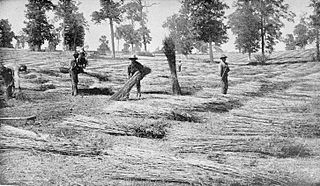Related Research Articles

The legality of cannabis for medical and recreational use varies by country, in terms of its possession, distribution, and cultivation, and how it can be consumed and what medical conditions it can be used for. These policies in most countries are regulated by three United Nations treaties: the 1961 Single Convention on Narcotic Drugs, the 1971 Convention on Psychotropic Substances, and the 1988 Convention Against Illicit Traffic in Narcotic Drugs and Psychotropic Substances. Since its descheduling in 2020, cannabis is classified as a Schedule I drug under the Single Convention treaty, meaning that signatories can allow medical use but that it is considered to be an addictive drug with a serious risk of abuse.

In the United States, the removal of cannabis from Schedule I of the Controlled Substances Act is a proposed legal and administrative change in cannabis-related law at the federal level. It has been proposed repeatedly since 1972. The category is the most tightly restricted category reserved for drugs that have "no currently accepted medical use."

In the United States, gambling is subject to a variety of legal restrictions. In 2008, gambling activities generated gross revenues of $92.27 billion in the United States.

The use, sale, and possession of cannabis containing over 0.3% THC by dry weight in the United States, despite laws in many states permitting it under various circumstances, is illegal under federal law. As a Schedule I drug under the federal Controlled Substances Act (CSA) of 1970, cannabis containing over 0.3% THC by dry weight is considered to have "no accepted medical use" and a high potential for abuse and physical or psychological dependence. Cannabis use is illegal for any reason, with the exception of FDA-approved research programs. However, individual states have enacted legislation permitting exemptions for various uses, including medical, industrial, and recreational use.

Cannabis political parties are generally single-issue parties that exist to oppose the laws against cannabis.

In the United States, the use and possession of cannabis is illegal under federal law for any purpose by way of the Controlled Substances Act of 1970 (CSA). Under the CSA, cannabis is classified as a Schedule I substance, determined to have a high potential for abuse and no accepted medical use. Despite this, most states have legalized either or both the medical and recreational use of cannabis.

The legal history of cannabis in the United States began with state-level prohibition in the early 20th century, with the first major federal limitations occurring in 1937. Starting with Oregon in 1973, individual states began to liberalize cannabis laws through decriminalization. In 1996, California became the first state to legalize medical cannabis, sparking a trend that spread to a majority of states by 2016. In 2012, Washington and Colorado became the first states to legalize cannabis for recreational use.

Initiative 59 was a 1998 ballot initiative in Washington, D.C., that sought to legalize medical cannabis. The short title of the initiative was "Legalization of Marijuana for Medical Treatment Initiative of 1998". Though the initiative passed with 69% of the vote in November 1998, its implementation was delayed by Congress's passage of the Barr Amendment, which prohibited DC from using its funds in support of the program. This Amendment delayed the start of the medical marijuana program until it was effectively overturned in 2009, with the first DC customer legally purchasing medical cannabis at a dispensary in the District in 2013.

Cannabis in Kentucky is illegal for recreational use, and legal for medical use under executive order, with full medical legalization statute taking effect in 2025. Non-psychoactive CBD oil is also legal in the state, and Kentucky has a history of cultivating industrial hemp for fiber since 1775.

Cannabis in Minnesota is legal for recreational use as of August 1, 2023. On May 30, 2023, Governor Tim Walz signed House File 100 into law, legalizing the use, possession, and cultivation of cannabis within the state. Licenses for commercial sales will likely not be issued until 2025, in order for the Office of Cannabis Management to establish regulatory frameworks.

Cannabis in Delaware is legal for medicinal and recreational use.

Cannabis in Sweden is illegal for all purposes. It is illegal for recreational purposes, for most medical purposes and possession of even small amounts of cannabis is a criminal offence. Consequently, limited medical usage of cannabis-based drugs is only allowed for specific conditions.
Cannabis in Luxembourg is legal for recreational and medical use for adults under specific circumstances. A bill was passed in the country's parliament June 2023 to legalise the following for adults in Luxembourg: recreational possession, home-use of cannabis, and growing up to four cannabis plants per household. The law took effect on 21 July 2023.
The list includes and details significant events that occurred in the global history of national-level implementations of, or changes made to, laws surrounding the use, sale, or production of the psychoactive drug cannabis.

The drug policy of Missouri involves the policies, measures and laws set by Missouri Senate and the Missouri House of Representatives in order to stop citizens from misusing drugs.
Kentucky Senate Bill 47 is a law enacted in 2023 to create a medical cannabis program in the state.
References
- ↑ "Representative Al Gentry (D)". Kentucky General Assembly. Archived from the original on 2023-05-04. Retrieved 2023-05-13.
- ↑ Kelly, Erin (2023-01-18). "Fans call for legalized sports betting in Kentucky". spectrumnews1.com. Archived from the original on 2023-03-21. Retrieved 2023-05-13.
- ↑ Tombs, Jeremy (2022-07-25). "Beshear weighing executive action on medical cannabis". WKYT. Archived from the original on 2022-12-04. Retrieved 2023-05-13.